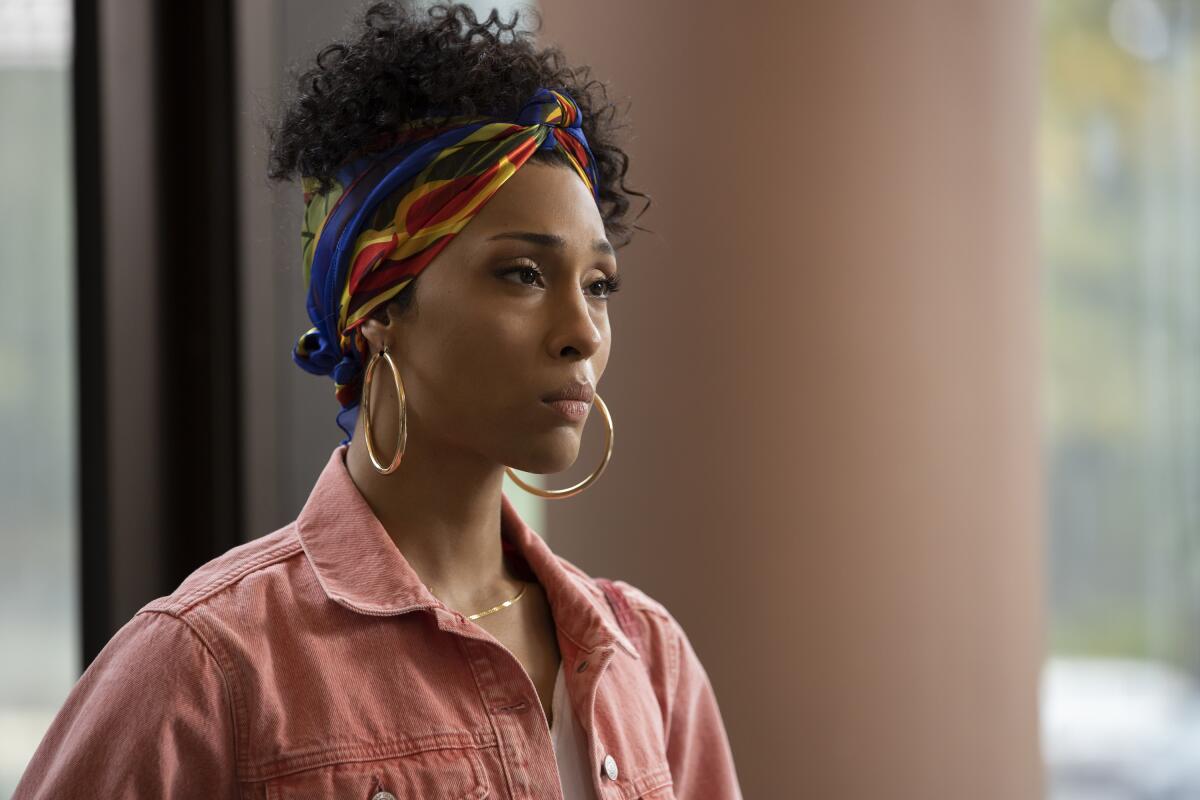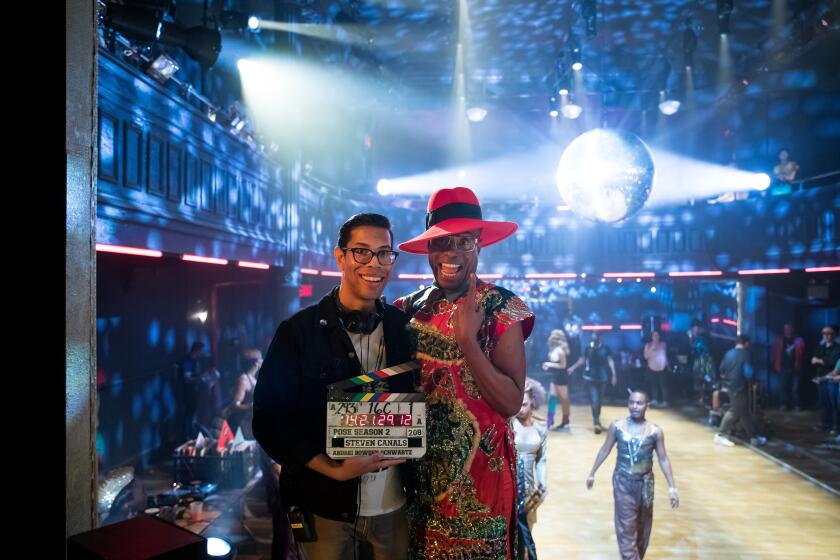The one scene that explains all of ‘Pose,’ according to showrunner Steven Canals

As FX’s groundbreaking drama “Pose” — an exploration of the lives of Black and Latinx LGBTQ New Yorkers set in the city’s ballroom scene of the ‘80s and ‘90s — crosses the halfway mark of its third and final season, co-creator Steven Canals says there’s one scene in the show’s very first episode that explains the series’ endgame.
It’s the scene in which Blanca (Mj Rodriguez), the show’s heroine and heart and soul, is diagnosed with HIV. And rather than demoralize her, the news spurs the character to take charge of her fate by forming her own “house,” a makeshift family unit that marginalized queer individuals established for themselves as a source of love and support.
FX’s “Pose” serves queer ballroom realness, from costumes to choreography, music to hair. The Times takes you behind the scenes.
“Historically, HIV/AIDS has always been a death sentence, and we were very intentionally making a decision to say, ‘It doesn’t have to be a death sentence,’” Canals says in the latest episode of the L.A. Times podcast “The Envelope.” “And in spite of the fact that these Black and brown, queer and trans people, who have very little resources at their disposal and are dealing with a lack of access to healthcare, are having to navigate this disease that is eviscerating their community, they’re still going to find the love and the joy and the connection to family, and they’re going to live a life.”
The third season has pushed the story forward in time from 1990 to 1994 and brought viewers up to speed on each character’s journey while the grim realities of the AIDS crisis looms large. The series will conclude its seven-episode farewell season on June 6.
From the Oscars to the Emmys.
Get the Envelope newsletter for exclusive awards season coverage, behind-the-scenes stories from the Envelope podcast and columnist Glenn Whipp’s must-read analysis.
You may occasionally receive promotional content from the Los Angeles Times.
“Blanca’s decision in that pilot to say, ‘I want to leave a legacy behind, and I want to create a family, and I’m going to form a house’ — that, to me, is what grounds the entire series,” Canals told The Times. “And so I think the finale, it honors that choice that we made right at the beginning, which is to say: ‘Yes, HIV/AIDS is absolutely something that the world is still contending with. We have not found a cure yet. And HIV/AIDS does not have to be a death sentence. If you are someone who is living with HIV, you absolutely are still deserving of love. And you deserve to take up space unapologetically. And you deserve to have your voice heard.’ I hope that that’s the message that people take away from the finale.”
Listen to “The Envelope” to hear the rest of our interview with Canals. He shares how the show, which halted production in the early days of the COVID-19 pandemic, made creative adjustments when production resumed and talks about giving the women of “Pose” the “Sex and the City” treatment.
This post contains spoilers for Tuesday’s episode of “Pose,” “Never Knew Love Like This Before.”
If you like learning more about what went into the making of some of the most talked-about movies and TV shows of the moment, check out our past conversations with “Mare of Easttown” star Kate Winslet and “Promising Young Woman’s” writer and director, Emerald Fennell, who recently took home an Oscar for original screenplay. Upcoming interviews include John Boyega for “Small Axe.”
Subscribe via Apple, Spotify or wherever you get your podcasts. New episodes post every Wednesday.
Can't get enough about awards season?
For more, follow us on Twitter at @villarrealy and @IndieFocus, and for a deeper dive into the best new movies, get Mark’s weekly Indie Focus newsletter.
If you’re enjoying this newsletter, please consider subscribing to The Times.
Feedback? We’d love to hear from you. Email us at awards@latimes.com.
The complete guide to home viewing
Get Screen Gab for everything about the TV shows and streaming movies everyone’s talking about.
You may occasionally receive promotional content from the Los Angeles Times.





